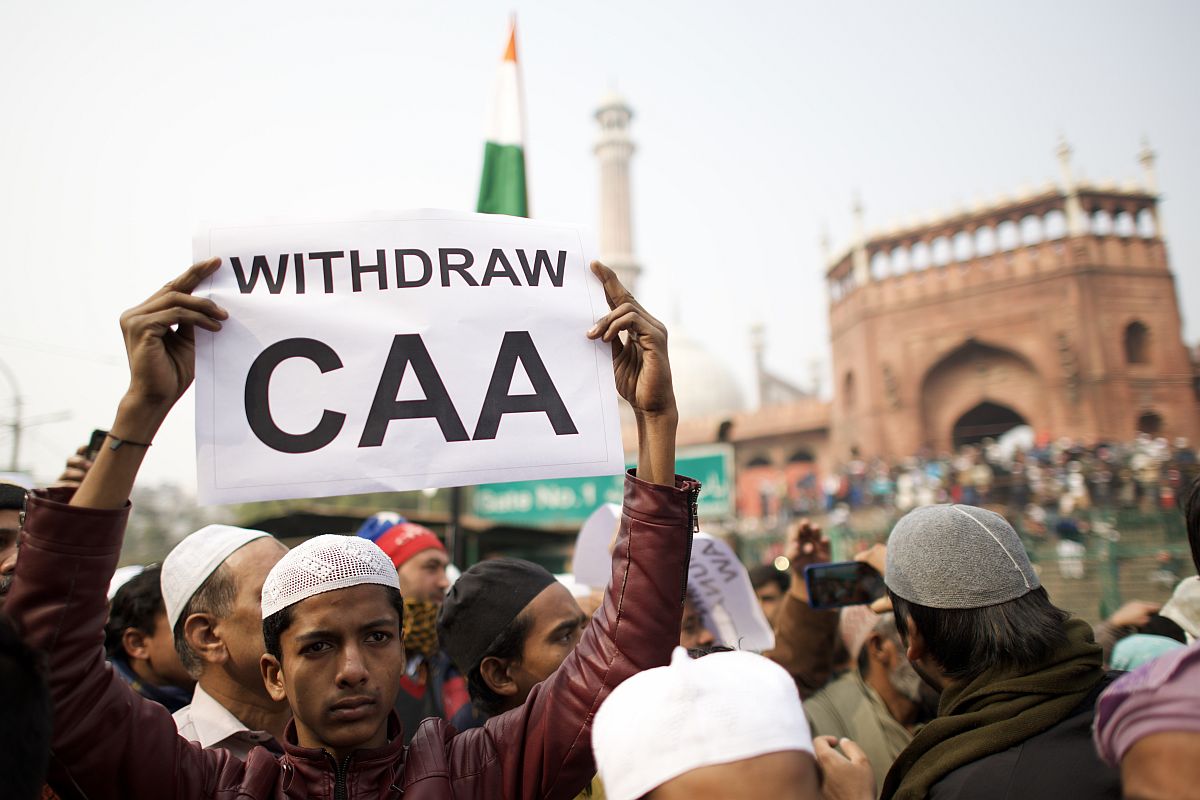When the Brahmaputra Valley erupted over the Citizenship Amendment Act, it reflected the concerns for linguistic identity of Assamese people. The common agitators largely consumed rumoured apprehensions that Assamese would become a minority in its own land as “Hindu Bangladeshis” were waiting to “grab” their land, language and culture.
But when the movement spread to other parts of the country, like Mumbai, New Delhi or Kolkata, it took on a different colour. The agitating leaders there termed the CAA as antiMuslim to its core, because the provisions under the Act spoke about benefits to only persecuted religious minorities (Hindu, Sikh, Jain, Buddhist and Christian) from Pakistan, Bangladesh and Afghanistan.
Advertisement
So, they termed it “not secular” in character. Many leaders cited clauses of the Indian Constitution to include victimised Muslims (other than the majority Sunni sect) in the category of beneficiaries under the CAA guidelines. The anti-CAA movement continued for nearly a year in Assam as a large number of influential student leaders, cultural personalities and intellectuals promoted and participated in the movement.
Many media personalities tried to term it as the second edition of the Assam Agitation, which generated huge public support against illegal migrants (particularly from Muslim-dominated Bangladesh). When the National Register of Citizens was updated in Assam under the supervision of the Supreme Court to identify genuine Indian citizens in the state, more than 1.9 million applicants (out of 33 million) could not submit proper documents to prove that they were original habitants of the land, or they had entered Assam on or before the midnight of 24 March 1971 (as mentioned in the historic Assam Accord).
The final NRC has, however, not satisfied everyone as the Bharatiya Janata Party-led government in Dispur argues that many illegal migrants (read Bangladeshi Muslims) had enrolled their names with fake documents and hence it proposes partial re-verification. On the other hand, many assert that thousands of indigenous families have been left out of the list as they failed to present the necessary papers.
Both the CAA and NRC remain debatable issues in Assam and they received public attention again with the publication of a book titled Citizenship Debate over NRC & CAA: Assam and the Politics of History authored by Nani Gopal Mahanta. It was released by Rashtriya Swayamsevak Sangh chief Mohan Bhagwat recently at the Shankardev Kalakshetra cultural complex in Guwahati. In his speech, the RSS chief was clear that both the CAA and NRC mean no harm to the Indian Muslim populace.
He also claimed that both the initiatives have been entangled with the communal Hindu-Muslim divide by a section of individuals for their selfish political interests. In both cases, a genuine Indian (irrespective of his/her religious practices) would never face any trouble, said Bhagwat.
“The country was divided by a group of leaders without the endorsement of millions of freedom fighters and common Indians,” he said, while addressing the distinguished audience, which had gathered following necessary Covid-19 protocols. He added that after Partition, the Indian government had addressed the concerns of minorities, but Pakistan failed to do so, which compelled millions of persecuted religious minorities to leave their country and enter India.
Freedom fighters had “wanted an independent ‘Akhand Bharat’”, but their dreams got shattered when they found themselves as Indian and Pakistani nationals on 15 August 1947 after the British left, said Bhagwat. India’s first Prime Minister Jawaharlal Nehru, while declaring in Parliament about the government’s commitment towards minorities, had “hoped that the rulers of Pakistan would also follow similar principles”.
But the reality turned in a different direction, said Bhagwat. Since 1930, there have been “organised attempts to increase the Muslim population in the country” to exercise their dominance and finally turn the entire land into an Islamic nation, said Bhagwat. The efforts were made particularly focusing on the provinces of Sindh, Punjab, Bengal and Assam, where the “conspirators also succeeded to some extent”, even though they could not acquire Assam and the whole of Punjab or Bengal.
Lately India has witnessed the emergence of a group of people who demand all Constitutional rights but does not perform duties defined by the same Constitution, said Bhagwat, adding that they also want to define secularism to their prejudiced advantages without respecting the “increasing apprehensions of original habitants” who are feeling “threatened in maintaining their language, culture and other social values in a changing demography”.
“Bharat does not only preach but practices secularism, democracy and pluralism as the nation believes in ‘Vasudhaiva Kutumbakam’ (world is one family). Indians live as relatives even though they pursue different languages, rituals, cultural activities, food-habits etc,” said Bhagwat. Speaking on the occasion, Assam chief minister Himanta Biswa Sarma claimed that he has always supported the CAA as India has a historic responsibility to support displaced refugees because of the relentless religious oppression in their countries.
The CM, however, admitted that the government also has the “duty to address the worries of the majority Assamese people” in protecting their rich cultural heritage and unique identity. Sarma criticised a section of Left intellectuals and so-called liberal media personalities for misleading the people of Assam in the CAA-NRC debate.
They “spread misinformation during the anti-CAA uproar” that millions of Bangladeshi Hindu nationals were entering Assam to grab abandoned lands. Congratulating the author, Sarma argued that the book, filled with historical facts, would give “a fitting reply” to those who continue to oppose both the CAA and NRC.
(The writer is the Guwahati-based Special)









